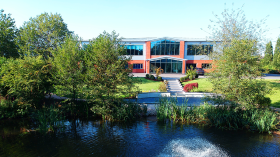In the heart of the UK's payment landscape stands allpay Limited, a pioneering force led by the visionary founder and entrepreneur, Tony Ki
Latest Supplier News
Borg & Overström is a UK manufacturer of premium drinking water solutions. For over 20 years Borg & Overström has developed sustainable, bottle-less, hygienic, drinking water dispensers with the aim to provide exceptional, safe, self-service drinking water into schools, universities, workplaces and communal spaces.

 Too many cooks spoil the broth, according to the saying. But at the School Food Trust’s Let’s Get Cooking programme, we think there can never be too many. In fact, we want to create many, many more – because we believe every child should have the cooking skills they need to grow into healthy adults.
Too many cooks spoil the broth, according to the saying. But at the School Food Trust’s Let’s Get Cooking programme, we think there can never be too many. In fact, we want to create many, many more – because we believe every child should have the cooking skills they need to grow into healthy adults.








